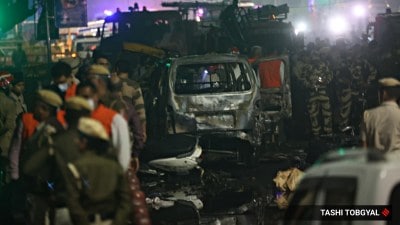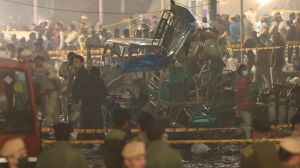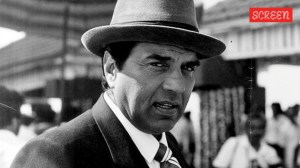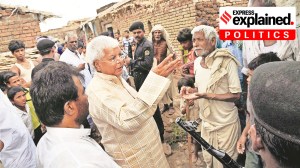Corporators’ pact of silence in BMC
May 7: A pact of silence was made in the Brihanmumbai Municipal Corporation today. This informal understanding, reached under rather dramat...

May 7: A pact of silence was made in the Brihanmumbai Municipal Corporation today. This informal understanding, reached under rather dramatic circumstances at the general body meeting, is likely to stifle any voice that is sought to be raised against corrupt corporators.
The first to learn this bitter lesson today was the Congress corporator from Vile Parle, Ashok Jadhav. Moments after he raised a point-of-order regarding the alleged misuse of powers by local Shiv Sena MLA Gurunath Desai to stop the demolition of an unauthorised building at Juhu, he had to face to a barrage of accusations about his own wrongdoings.
Jadhav had alleged that Desai (though, he did not take his name) had used his influence to stop the demolition of an unauthorised structure – Wahab Mansion – at Tanaji Malusere Marg (Juhu Gaothan) in Vile Parle. A demolition notice was served on the owner of the house in 1995.
While Jadhav’s point of order was supported by most Opposition members including Congress’ R R Singh, Subhash Mayekar and K A Bastiwala and Samajwadi Party’s Yaqoob Memon, the ruling Sena-BJP corporators, opposed it.
However, it was leader of the house, Sena’s Nandu Satam, who turned the tide against Jadhav. Quoting from two letters written by Desai justifying his action, Satam said that the building was not occupied by the owners or its tenants when the BMC staff went to demolish it. “The adjoining two buildings are also unauthorised and as such, all the three buildings should be demolished simultaneously,” Satam quoted from the letters written by Desai to him and the deputy municipal commissioner.
Later, in a dramatic move, Satam pulled out a bunch of papers and launched a scathing attack on the Opposition, alleging involvement of several Congress corporators in unauthorised constructions in their respective wards.
Satam pointed out that there was an unauthorised dancing joint Deepa Bar’ near the residence of Jadhav which openly flouted all civic and police regulations, but Jadhav had never complained against it. He further alleged that the unauthorised multi-storeyed Arihant building in Subhash Mayekar’s ward was built with his tacit approval. “BMC will have to spend Rs 40 lakh to demolish this building,” Satam said.
He also alleged that Samajwadi Party’s co-opted member Ramesh Joshi had built an illegal slum along a link road to prevent its widening. “The slum has been named after him as Ramesh Joshi Vasahat,” he said.“As far as Bastiwala is concerned, his very name suggests that he has been actively involved in illegal constructions,” Satam alleged amidst loud protests from the Congress benches.
Coming to the end of his tirade he threw up a challenge to the Opposition: “I had warned you not to raise such points in the House. People living in glass houses should not throw stones at others.”
When Mayor Vishakha Raut rose to giver her ruling on the point-of-order, Jadhav pleaded that he be given a chance to clarify his position. “I did not name the MLA, therefore I should be given a chance to reply to the personal allegations made against me,” he shouted amidst the din. However, Raut rejected the point-of-order without making any statement.
or ¬Ut›ÔB¼Tt›intervene and get an impartial inquiry. Citing the examples of scams, he remarked that corruption in the country had reached its peak, and the courts could not watch as mute spectators. The Justice blamed politicians and the media for unnecessarily raising a hue and cry about the alleged encroachment by the judiciary on the powers of the executive. “Our written constitution is supreme, and if the rights of people have been mentioned, they cannot be encroached upon,”he declared.
Noted jurist Nani Palkhivala, president of the FFE, commented that India was blessed with a committed judiciary which had done tremendous work in safeguarding the rights of its citizens. “Kuldip Singh is one of a rare breed of judges, who is renowned as the green judge’ for the commendable work he has done to save the environment,” said Palkhivala.
He remembered that during the period of Emergency rule imposed by the former Prime Minister Indira Gandhi, the power of judges had unfortunately been curtailed, and this should not be repeated.
shif¬Ut›¤>¬Ut›tters will further delay the disposal of cases,” he felt. The school tribunals were set up at Mumbai, Pune, Nagpur and Aurangabad in July, 1981, to provide redressal within a short span of three months. The decisions of the tribunals are final and binding. The Mumbai tribunal initially had jurisdiction over districts of Mumbai and suburbs, Thane, Raigad, Ratnagiri, Sindhudurg, Nashik, Dhule and Jalgaon. Later in 1994, with the formation of a few more tribunals, the Mumbai tribunal was left with jurisdiction over the districts of Mumbai and suburbs only.





- 01
- 02
- 03
- 04
- 05


























